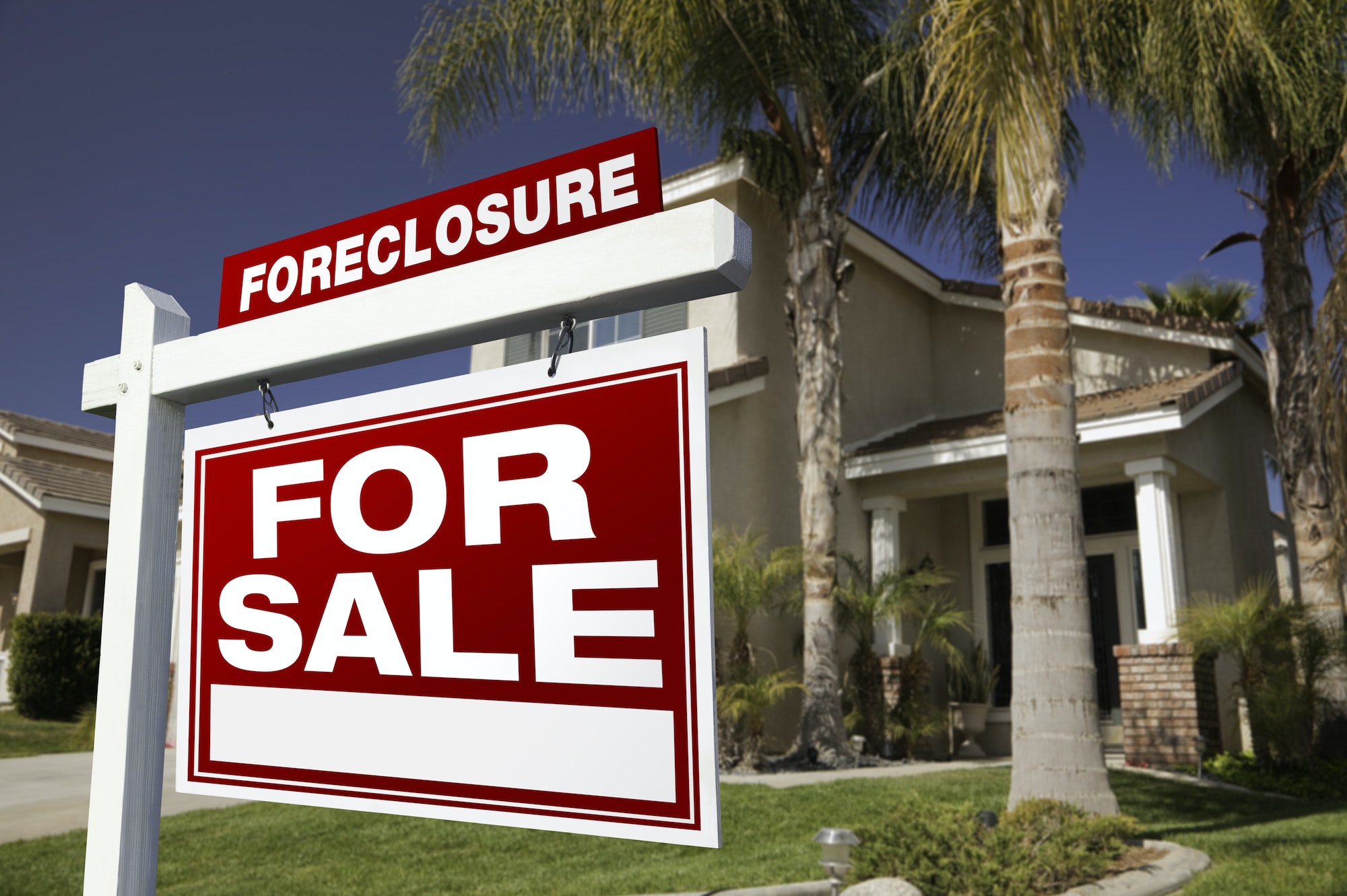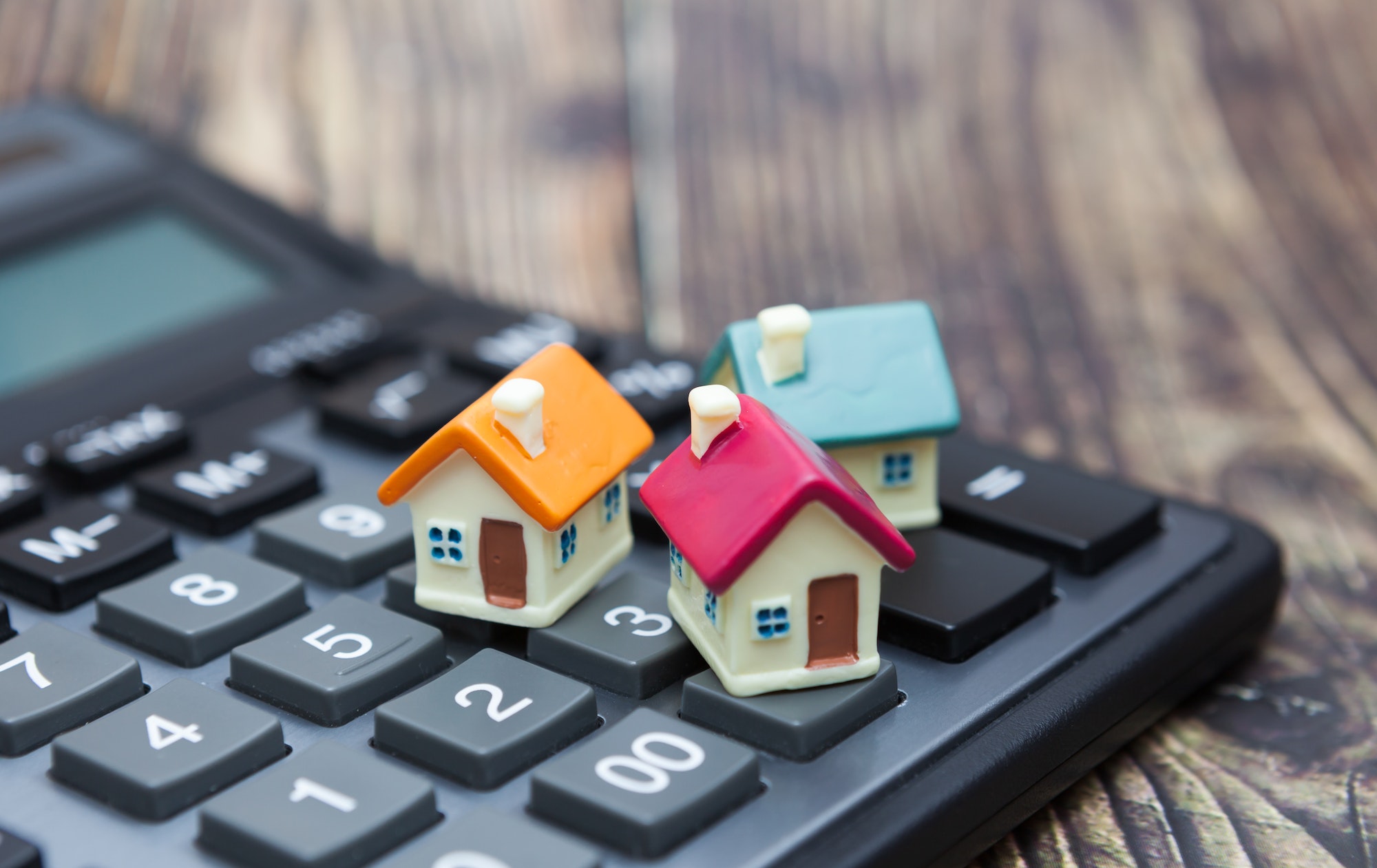Can you buy a foreclosed home with an FHA loan? Absolutely! It’s a question many prospective homeowners are asking as they navigate the challenging housing market of 2023. With foreclosure rates on the rise since the COVID-19 pandemic, there’s an increasing number of properties entering the market, offering potential opportunities for buyers.
According to recent data from Norada Real Estate, foreclosure filings were reported on 324,237 U.S. properties in 2022, a significant increase from the previous year. This trend is expected to continue into 2023, presenting a unique opportunity for those looking to buy a home at a potentially lower cost.
But how does one go about purchasing a foreclosed home with an FHA loan? Let’s dive into the process.
Table of Contents
1. Understanding FHA Loans
The Federal Housing Administration (FHA) is a government agency that provides mortgage insurance on loans made by FHA-approved lenders throughout the United States. FHA loans are designed for low-to-moderate income borrowers who are unable to make a large down payment.
As of 2023, Americans owe $11.92 trillion on their mortgages, and mortgage debt accounts for 70.6% of consumer debt in the U.S. Even with interest rates hovering around 6.50%, mortgage demand hasn’t disappeared, and Americans across the country are trying to navigate today’s challenging housing market.
FHA loans are a popular choice among these borrowers. These loans are attractive because they come with less stringent requirements than conventional loans. For instance, they require a lower minimum credit score and down payment. Specifically, borrowers need a credit score of at least 580 for a 3.5% down payment or 500 for a 10% down payment.
However, it’s important to note that FHA loans are not issued by the FHA. Instead, they are issued by FHA-approved lenders and insured by the FHA. If a borrower defaults on an FHA loan, the FHA pays the lender the remaining amount owed on the loan, protecting the lender from financial loss.
The insurance requirement means that FHA loans come with two types of mortgage insurance premiums: an upfront premium paid at closing and an annual premium paid over the life of the loan. This insurance makes FHA loans more expensive over the long term compared to conventional loans.
Despite this, FHA loans can be a good option for those who have a lower credit score or who can’t afford a large down payment. They can also be a good option for those who have experienced bankruptcy or foreclosure in the past, as the waiting period after these events is shorter for FHA loans than for conventional loans.
2. Checking Your Eligibility for an FHA Loan
Before you can proceed with buying a foreclosed home using an FHA loan, it’s crucial to ensure that you meet the eligibility criteria set by the Federal Housing Administration (FHA). Here are the main factors that the FHA considers when determining your eligibility:
- Credit Score: The FHA requires borrowers to have a minimum credit score to qualify for an FHA loan. If your credit score is 580 or higher, you may qualify for an FHA loan with a down payment as low as 3.5%. If your credit score is between 500 and 579, you may still qualify, but you’ll likely need to make a down payment of at least 10%.
- Employment History: The FHA typically requires borrowers to have a steady employment history for the last two years. They may make exceptions for recent graduates or military veterans.
- Debt-to-Income Ratio: This is the percentage of your monthly income that goes towards paying your debts. The FHA typically requires borrowers to have a debt-to-income ratio of less than 43%, but this can vary depending on other factors.
- Property Requirements: The property you’re purchasing must meet certain standards to qualify for an FHA loan. It must be your primary residence, and it must pass an FHA appraisal.
- Mortgage Insurance: Borrowers who get an FHA loan are required to pay for mortgage insurance. This includes an upfront premium that’s usually 1.75% of the loan amount, as well as an annual premium.
It’s important to note that meeting these requirements doesn’t guarantee that you’ll be approved for an FHA loan. Lenders also have their own requirements, and they may be more stringent than the FHA’s. Therefore, it’s a good idea to shop around and speak with multiple lenders to understand their specific requirements and find the best loan for your situation.
3. Getting Pre-Approved for an FHA Loan
Getting pre-approved for an FHA loan is a significant step in the home buying process. It not only shows sellers that you’re a serious buyer, but it also gives you a clear understanding of how much you can afford. Here’s what you need to know about the pre-approval process:
- Gather Your Documents: Before you can get pre-approved, you’ll need to gather several documents. These typically include proof of income (like pay stubs or tax returns), proof of assets (like bank statements), and personal identification.
- Choose a Lender: Next, you’ll need to choose an FHA-approved lender. It’s a good idea to shop around and compare rates and terms from several lenders before making a decision.
- Complete the Application: Once you’ve chosen a lender, you’ll need to complete their loan application. This will likely include providing information about your income, assets, debts, and employment.
- Undergo a Credit Check: The lender will then perform a credit check. This will allow them to see your credit score and credit history, which are key factors in determining your loan eligibility and interest rate.
- Receive Your Pre-Approval Letter: If the lender determines that you’re eligible for a loan, they’ll provide you with a pre-approval letter. This letter will state how much the lender is willing to lend you based on your financial situation.
A pre-approval is not a guarantee of a loan. It’s simply an indication of how much a lender is willing to lend you. You’ll still need to find a home, have it appraised, and go through the underwriting process before the loan is finalized.
4. Finding a Foreclosed Home
Once you’re pre-approved for an FHA loan, the next step is to find a foreclosed home that fits your needs and budget. Here’s how you can go about it:
- Real Estate Agents: Real estate agents can be a valuable resource in your search for a foreclosed home. They have access to multiple listing services (MLS) and can help you find properties that meet your criteria.
- Online Listings: There are numerous online platforms that list foreclosed properties. Websites like Zillow, RealtyTrac, and Foreclosure.com can provide you with a wealth of information about foreclosed homes in your desired area.
- Bank Websites: Many banks list their foreclosed properties on their websites. These can be a good source of potential homes, especially if you’re looking for properties that have been repossessed by the lender.
- Public Records: Foreclosures are a matter of public record. You can check with your local county’s office to find listings of foreclosed properties.
- Auctions: Foreclosed homes are often sold at auctions. These can be a great place to find a deal, but be aware that you’ll likely need to pay in cash at the auction.
Buying a foreclosed home can be a complex process, and these properties often come “as is,” meaning the seller won’t make any repairs. It’s crucial to do your due diligence, including getting a home inspection and understanding the potential costs of any necessary repairs.
5. Inspecting a Foreclosed Home
When buying a foreclosed home, it’s crucial to conduct a thorough inspection of the property. Foreclosed homes are typically sold “as is,” meaning the seller, often a bank, won’t make any repairs. Here’s what you need to know about inspecting a foreclosed home:
- Hire a Professional Home Inspector: A professional home inspector can provide a detailed report on the condition of the home. They’ll check everything from the foundation to the roof, looking for any potential issues that could become costly repairs down the line.
- Understand the Scope of the Inspection: A standard home inspection covers the home’s structure, exterior, roofing, plumbing, electrical, heating and air conditioning systems, interior, insulation, and ventilation. However, it may not cover things like pests, mold, or asbestos. You may need to hire additional specialists for these inspections.
- Attend the Inspection: If possible, attend the home inspection. This gives you a chance to ask questions and get a firsthand understanding of any potential issues with the home.
- Review the Inspection Report: The home inspector will provide a detailed report of their findings. Review this report carefully. It will help you understand the condition of the home and what repairs may be needed.
- Consider the Costs: If the inspection reveals that significant repairs are needed, consider the costs. You’ll need to factor these into your budget and decide whether the home is still a good deal.
The goal of a home inspection is not to negotiate a lower price, but to understand what you’re getting into. A foreclosed home may be cheaper upfront, but the cost of repairs could add up.
6. Making an Offer on a Foreclosed Home
Once you’ve found a foreclosed home that meets your needs and passed the inspection, the next step is to make an offer. Here’s how you can go about it:
- Determine Your Offer Price: The first step in making an offer is to determine how much you’re willing to pay for the home. Consider the home’s market value, the cost of any necessary repairs, and the amount you’ve been pre-approved for by your lender.
- Prepare a Written Offer: Once you’ve determined your offer price, you’ll need to prepare a written offer. This is typically done with the help of a real estate agent. The offer should include the price you’re willing to pay, any contingencies (like passing a home inspection), and the amount of earnest money you’re offering.
- Submit Your Offer: Once your offer is prepared, you can submit it to the seller. In the case of a foreclosed home, the seller is often a bank or other financial institution.
- Negotiate: The seller may accept your offer, reject it, or make a counteroffer. Be prepared to negotiate to reach a final sale price that both you and the seller agree on.
- Sign a Purchase Agreement: Once you and the seller agree on a price, you’ll sign a purchase agreement. This legally binding contract outlines the terms of the sale, including the sale price, closing date, and any contingencies.
Making an offer on a foreclosed home can be a complex process. It’s important to work with a real estate agent or other professional who can guide you through the process and help you make the best decision for your situation.
7. Applying for an FHA Loan
Once your offer on a foreclosed home is accepted, the next step is to formally apply for your FHA loan. Here’s what you need to know about this process:
- Complete the Loan Application: Your lender will provide you with a loan application to fill out. This will likely include providing information about your income, assets, debts, and employment.
- Submit Required Documents: Along with your application, you’ll need to submit several documents. These typically include proof of income (like pay stubs or tax returns), proof of assets (like bank statements), and personal identification.
- Wait for Loan Processing: Once you’ve submitted your application and documents, your lender will begin processing your loan. This involves verifying all the information you’ve provided and ordering a home appraisal.
- Undergo Underwriting: After your loan is processed, it will go to underwriting. The underwriter will review all of your information and decide whether to approve your loan.
- Close on Your Loan: If your loan is approved, you’ll move on to closing. This is when you’ll sign all of the final paperwork, pay any closing costs, and receive the keys to your new home.
Applying for an FHA loan is a detailed process that requires careful attention to detail. Be sure to provide accurate information and respond to any requests from your lender promptly to ensure the process goes as smoothly as possible.
8. Home Appraisal for an FHA Loan
A home appraisal is a crucial part of the FHA loan process. It’s an evaluation of the home’s value and condition conducted by an FHA-approved appraiser. Here’s what you need to know about this process:
- Ordering the Appraisal: Once you’ve applied for your FHA loan, your lender will order an appraisal. The appraiser must be approved by the FHA.
- Conducting the Appraisal: The appraiser will visit the home and conduct a thorough inspection. They’ll evaluate the home’s size, condition, location, and comparable homes in the area to determine its market value.
- Property Requirements: The FHA has specific property requirements that the home must meet. These include safety, security, and soundness standards. If the home doesn’t meet these standards, the seller may need to make repairs before the loan can be approved.
- Receiving the Appraisal Report: After the appraisal is complete, the appraiser will provide a detailed report. This report will include the appraiser’s opinion of the home’s market value and any necessary repairs.
- Reviewing the Appraisal: Your lender will review the appraisal report. If the home appraises for at least what you offered and no significant issues are found, you can proceed to closing. If the home appraises for less than what you offered, you may need to renegotiate with the seller or come up with the difference in cash.
An appraisal is not the same as a home inspection. While an appraisal evaluates the home’s value and basic condition, a home inspection provides a more detailed look at the home’s condition and potential issues.
9. Closing the Deal on a Foreclosed Home with an FHA Loan
Closing the deal, also known as settlement or escrow, is the final step in buying a foreclosed home with an FHA loan. Here’s what you need to know about this process:
- Review Closing Documents: Before closing, you’ll receive a closing disclosure from your lender. This document outlines the terms of your loan, your closing costs, and the amount you’ll need to bring to closing. Review this document carefully and ask your lender any questions you have.
- Prepare Funds: You’ll need to bring a cashier’s check or arrange a wire transfer for the amount due at closing. This typically includes your down payment and closing costs.
- Attend the Closing Meeting: The closing meeting is where the property legally transfers from the seller to you. You’ll sign a lot of paperwork, including your loan documents and the property’s deed.
- Pay Closing Costs and Down Payment: At the closing meeting, you’ll pay your down payment and closing costs. Once these are paid, you’ll receive the keys to your new home.
- Record the Deed: After closing, the deed will be recorded in the local records office. This officially makes you the homeowner.
Closing on a home can be a complex process. It’s important to work with a real estate agent or attorney who can guide you through the process and ensure everything is done correctly.
10. Moving Into Your New Home
After closing the deal on your foreclosed home with an FHA loan, the final step is to move in! Here’s what you need to know about this exciting process:
- Plan Your Move: Start by planning your move. This includes deciding whether to hire professional movers or do it yourself, packing your belongings, and arranging for utilities to be turned on in your new home.
- Address Change: Don’t forget to update your address with the post office, your employer, and any other relevant entities. This ensures that all your mail will reach you at your new home.
- Clean and Repair: Before moving in, you might want to clean the home and make any necessary repairs. Since foreclosed homes are sold “as is,” there might be some work to do to make the home move-in ready.
- Move In: On moving day, transport all your belongings to your new home and start unpacking. This can be a big job, so consider enlisting help from friends or family.
- Celebrate: Finally, take time to celebrate! Buying a home, especially a foreclosed home with an FHA loan, is a big accomplishment. Enjoy your new space and make it your own.
Moving into a new home is a significant transition. It might take some time to settle in and make the home feel like yours. But with patience and effort, you can turn your new house into a comfortable and welcoming home.
As we’ve journeyed through the process of buying a foreclosed home with an FHA loan, it’s clear that while the path may have its complexities, it’s certainly navigable with the right knowledge and preparation. From understanding the nature of FHA loans, checking your eligibility, getting pre-approved, finding a suitable foreclosed home, to finally moving in, each step is a milestone towards achieving your dream of homeownership.
In the end, the journey is as rewarding as the destination. The joy of turning a house into a home, the satisfaction of making smart financial decisions, and the pride of homeownership are all part of this exciting adventure. So, as you embark on this journey, remember to take each step with confidence and patience.
And when you finally turn the key in the lock of your new home, remember to take a moment to celebrate. After all, you’ve navigated the complexities of the real estate market, made a savvy investment, and now have a place to call your own. Here’s to new beginnings in your new home!
FAQs
What is mortgage insurance and why is it required for an FHA loan?
Mortgage insurance is a policy that protects lenders against losses that result from defaults on home mortgages. For FHA loans, borrowers are required to pay a mortgage insurance premium, which is added to the loan amount. This insurance provides the lender with protection in case the borrower defaults on the loan.
How long does the process of buying a foreclosed home with an FHA loan take?
The process of buying a foreclosed home with an FHA loan can vary in length, but it typically takes between 30 to 60 days from the time your offer is accepted. This timeline can be influenced by a variety of factors, including the speed of the home inspection, appraisal, and underwriting processes.
Can I buy a foreclosed home with an FHA loan if I’m a first-time homebuyer?
Yes, FHA loans are actually very popular among first-time homebuyers because of their lower down payment requirements and more lenient credit score criteria. Buying a foreclosed home can be a great way for first-time homebuyers to get into a home at a lower cost.
What happens if the home appraisal comes in lower than my offer?
If the home appraisal comes in lower than your offer, it can complicate your loan approval because the FHA will not lend more than the appraised value of the property. In such cases, you can renegotiate the price with the seller, pay the difference out of pocket, or in some cases, challenge the appraisal.
What are the benefits of buying a foreclosed home with an FHA loan?
Buying a foreclosed home with an FHA loan can offer several benefits. These include the potential to purchase a home at a lower cost, the ability to finance the home and necessary repairs with a single loan, and more lenient credit and down payment requirements compared to conventional loans.
Discover more from Futurist Architecture
Subscribe to get the latest posts sent to your email.




